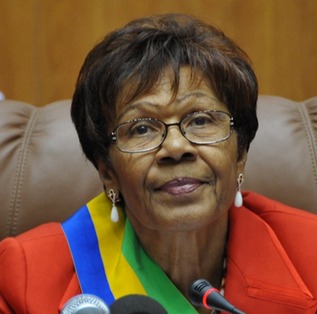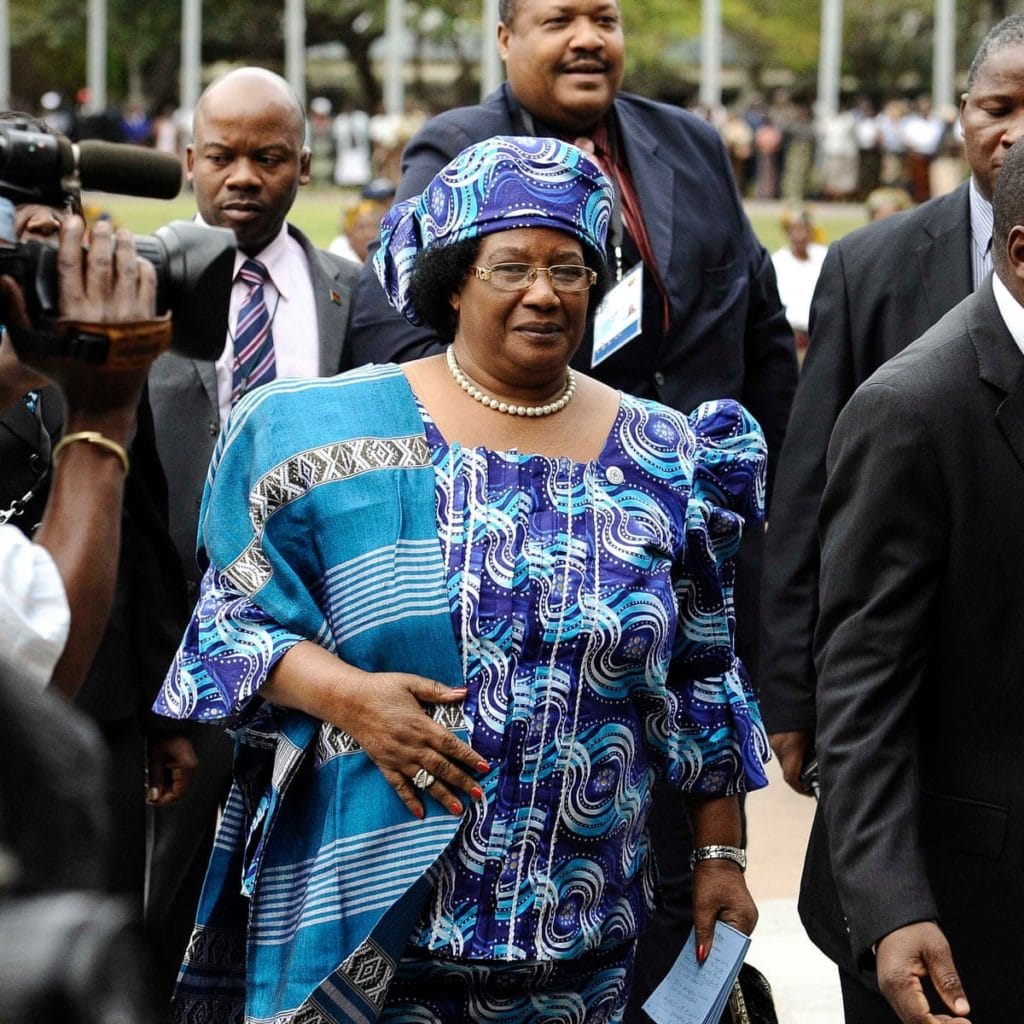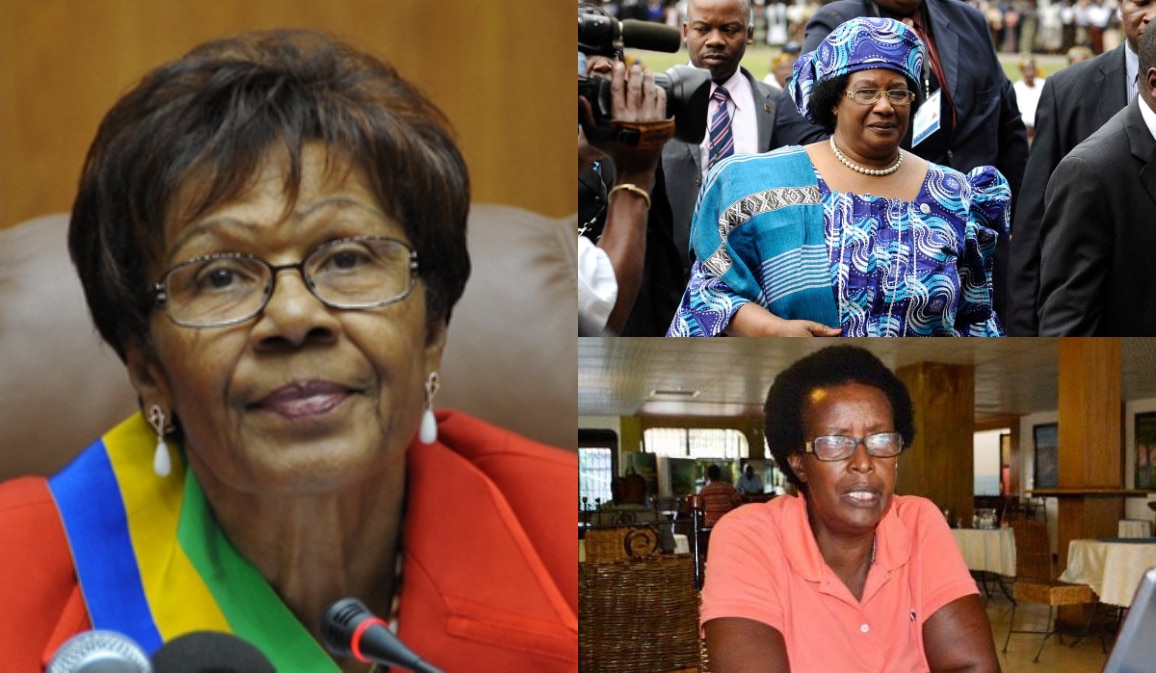By Mical Imbukwa
On 19th February 2021 Her Excellency Mama Samia Suluhu Hassan was sworn in as the 6th president of the United Republic of Tanzania, following the untimely demise of President John Joseph Pombe Magufuli. Her firm stand against corruption is evident, following her suspension of Deusdedit Kakoko, Head of Ports Authority.
Kakoko was suspended to allow investigations into the disappearance of 3.6 billion shillings ($1.56 million) from the Tanzania Ports Authority. The president assured Tanzanians that she will stand firm against corrupt practices, and that public funds will be put to proper use.
Hon. Suluhu joins the list of African women leaders who ascended to power due to death or resignation of their predecessors. We take a peek at the lives of these phenomenon African women, beginning with Silvie Kinigi of Burundi.
1. Silvie Kinigi
Following the assassination of President Melchior Ndadaye and six of his ministers by Tutsi insurgents which marked the beginning of Burundi Civil War, Kinigi held the position of acting president from 10th July 1993 to 7th February 1994. President Ndadaye had appointed her as Prime Minister, with the intention of building unity between Hutu and Tutsi and to decrease the Tutsi hostility to his administration.

Silvie Kinigi – Photo Ali Naka
Kinigi was adamant on reconciliation, and after leaving the French embassy where alongside others she had gone to seek refuge from the widespread ethnic violence, she brought together 15 of the 22 ministers to continue to govern. Her position was reinforced when Pierre Buyoya and Jean Baptiste Bagaza, former military presidents, gave their support to her government. In 1994 however, parliament elected Cyprien Ntaryamira, who was then agriculture minister, to complete president Ndadaye’s term.
Kinigi was born in 1953 in the countryside of Burundi to a merchant father and a peasant mother who kept their home. She was the third of six children, and unlike her elder sister who helped her mother around the home, she was allowed to go to a Belgian school for girls, run by nuns. After her secondary education, she went to Bujumbura, the then capital to study economics. At age 19, she got married to a professor and had four children as she continued her studies.
With her involvement in the women’s organization of the governing Tutsi party, she managed to get laws changed and economic and social measures implemented for women. Upon graduation from Burundi University, she got a job in Burundi’s central bank and held a part-time teaching job at the university. She rose to the head of research and studies in the bank. In 1991, she became adviser to the prime minister and was responsible for reducing military expenditure and carrying out economic reform programs. She remains the only woman to have headed Burundi.
2. Ruth Perry
Ruth Perry was the first female president of Liberia. Her entry into politics was a thing of chance. She campaigned and rallied women to vote for her husband, and when her husband passed on, his party asked her to vie for a senatorial seat. In 1985, Perry won a seat in the Liberian Senate as a Unity Party candidate. She was independent minded, so much so, that she refused to join senate boycotts in protest of President Samuel Doe’s purported illegitimate government. She became the lone opposition member in the assembly. She said, “you can’t solve the problems by staying away.”
On August 17, 1996, after 17 years of conflict and 7 years of war, the Economic Community of West Africa States (ECOWAS) representatives negotiated a cease-fire between Liberia’s warring factions and announced that Perry would replace Wilton Sankawulo as Chairman of the Council of State in an interim government. Reportedly all four warlords in the Liberian conflict had agreed to the pact with Perry as interim leader, after her return from a brief exile in Staten Island New York. She later stepped down and moved between Liberia and the US. In 2004, she was an African President-in-Residence at the African Presidential Archives and Research Center at Boston University. She died at age 77 on 8th January 2017.
3. Rose Francine Rogombe

Rose_Francine_Rogombe Photo: Wikipedia
Rose Francine Rogombe was acting president of Gabon from June 2009 to October 2009, following the death of long time president Omar Bongo. Rogombe constitutionally succeeded Bongo due to her role as president of the senate, a post she held from February 2009. She was the first female head of state of Gabon. After her interim role, she returned to her role as president of the senate. There was no provision in the constitution specifically enabling her to return to her former post, but it was believed that her resumption of duties in the Senate could constitute a precedent in that regard. In recognition of her work in leading Gabon through the early presidential election, Marcel Sandoungou the oldest Senator, presented her with a medal of honor on her return to the Senate. She was a lawyer by profession and a member of the Gabonese Democratic Party (PDG).
A member of the Galwa ethnic group, Rose Francine Etomba was born in Lambarene France Equatorial Africa (Now Gabon) in 1942. She studied in France after which she served as a magistrate in Gabon. She was involved in governance as secretary of state for the Advancement of Women and Human Rights. Rogombe left politics during the transition to multiparty politics in the early 1990s. She devoted herself to law and eventually became Vice-President of the Special Criminal Court. In 2007, she received a degree in theology. She went back to politics in 2008 when she was elected as a Municipal Councilor in Lambarene and subsequently senator in 2009.
Her humanitarianism was experienced on 30th January 2010, when she distributed 23,000 toys to children in belated celebration of Christmas. Rogombe died on 10th April 2015 in Paris, France where she had been hospitalized.
4. Agnes Monique Ohsan-Bellepeau
Agnes Monique Ohsan Bellepeau was twice the acting president of Mauritius. The first time was in 2012 when Sir Anerood Jugnouth resigned following a feud with the prime minister and later in 2015 when Kailash Purryag resigned. She maintained her vice presidency role from November 2010 to April 2016 (having been appointed after the death of Vice President Angidi Chettiar). Prior to politics, she was a journalist and News Anchor on the national TV channel the Mauritius Broadcasting Corporation. She got into government in 2010 after winning a parliamentary election. She was unanimously elected by all members of the National Assembly to become the first female Vice President of Mauritius.
Bellepeau was a member of the Mauritian Labor Party and later became the President of the Party. She is the daughter of Bartholomée Ohsan, who was a founding member of the party. Yves Joseph Bellepeau, her husband, died on 16th November 2010, exactly three days after she was sworn in as Vice President. She was honored as Grand Officer of the Star and Key of the Indian ocean in 2009 and that is why there is the honorific suffix (GOSK) against her name. She was born in 1942.
5. Joyce Banda

Joyce Banda Photo: The Guardian
Joyce Hilda Banda took office as President after the sudden death of President Mbingu Wa Mutharika. She was Malawi’s fourth president, first female president and second female head of state after Elizabeth II. Banda was the second woman to become President on the African continent.
Born on April 1950 in Malema, a village in the Zomba District of Nyasaland (now Malawi), Banda is the founder and leader of the People’s Party formed in 2011. Prior to her political career, she was the founder of Joyce Banda Foundation, founder of the National Association of Business Women (NABW), Young Women Leaders Network and the Hunger Project. In June 2014, Forbes named her as the 40th most powerful woman in the world and the most powerful woman in Africa. In October 2014, she was included in the BBC’s top 100 women.
Her father was a police brass band musician. Joyce began her career as a secretary and became a well-known figure during the rule of dictator Hastings Banda (no relation). She married Roy Kachale, with whom she had three children. At the age 25, she lived in Nairobi, Kenya. In 1975, a growing women’s movement in Kenya motivated her to take her three children and leave what she has described as an abusive marriage. Her marriage to Roy Kachele ended in 1981. She is now married to Richard Banda, retired Chief Justice of Malawi, with whom she has two children.
She has a Cambridge School Certificate, a Bachelor of Arts Degree in Early Childhood Education from Columbus University, a Bachelor of Social Studies in Gender Studies from Atlantic International University, and a Diploma in Management of NGOs from the International Labor Organization (ILO) Centre in Turin, Italy. Currently, she is studying for a Master of Arts Degree in Leadership at Royal Roads University in Canada. She received a honorary doctorate in 2013 from Jeonju University.
The following African women got into office through competitive elections.
Ellen Johnson Sirleaf – Elected president of Liberia
Catherine Samba-Panza – transitional President of Central African Republic, elected by parliament
Ameenah Gurib-Fakim – President of Mauritius, elected by parliament
Sahle-Work Zewde – President of Ethiopia, elected by parliament

